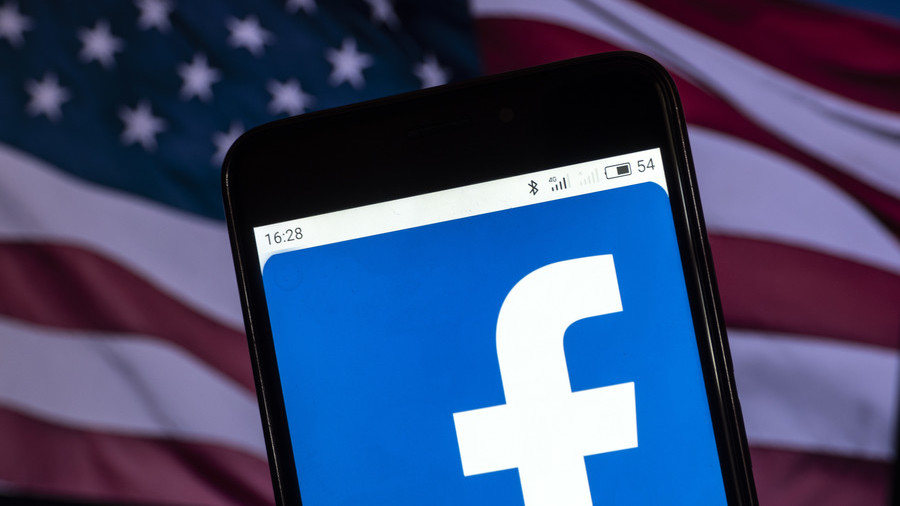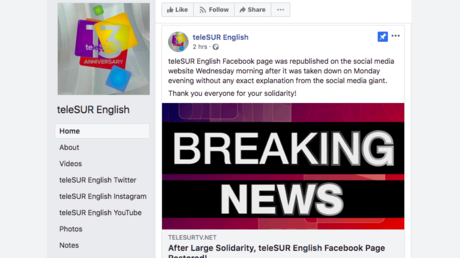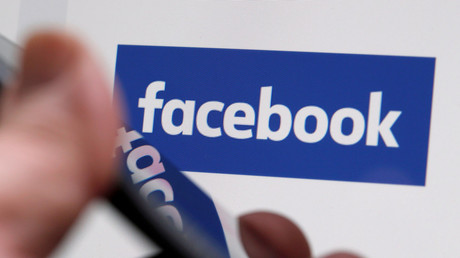‘Imperial arrogance’: Fake FB accounts spewing US propaganda at Cubans fit the pattern

While the US accuses Russia of using internet trolls to sow discord, Washington is funding its own propaganda body's program of 'non-branded Facebook accounts' operating in Cuba.
Here is a fun fact: The US Office of Cuba Broadcasting (OCB), an arm of America's official foreign propaganda agency the Broadcasting Board of Governors (BBG), is setting up "non-branded local Facebook accounts to disseminate information"in Cuba. The OCB believes that such pages are more likely to be appearing on newsfeeds of actual Cubans with access to the social network – apparently because Facebook changed its algorithms to give priority to living people over organizations in its crusade on the phantom menace of 'Russian fake news'.
The quote does not come from some leaked report on American information warfare against the Cuban government. It comes from page 31 of the BBG's request for fiscal year 2019 funding. Spending taxpayer money on fake online personas used to disseminate propaganda and meddle in another nation's affairs is perfectly fine – so long as it’s America doing it.
Of course, the US public will probably not know this, because the national networks are more interested in explaining how bad Russians are plotting to kill Americans by convincing them not to vaccinate. A barrage of no less than 253 tweets was launched with that purpose, according to a recent study (over a period of three years, almost half pro-vaccination, cannot be actually confirmed to have come from Russia). But readers of The Miami New Times may learn about the Cuban story too, along with how the US wasted money for decades in "Wile E. Coyote-esque stunts" to reach the Cuban public.
US attempts to destabilize the Cuban government have been ongoing since 1959, although after the Cold War the focus shifted more to less-direct methods like funding anti-government groups in Cuba and trying to stir dissent through radio and TV broadcasts, points out William Robinson, author and professor of sociology at the University of California. The "non-branded accounts"are just another part of this effort.
"That's the same thing that the United States is doing all around the world: in Russia, in Eastern Europe, in Latin America, Africa, the Middle East and Asia," he told RT. Robinson added that many of Americans are simply not aware of such facts because major US media outlets would not report them.
"The corporate media and the political leaders in the United States present US interventions around the world… as the promotion of democracy and human rights," he said. "And this propaganda in the United States has normalized this double standard, whereby the US can intervene all around the world – politically, at the level of propaganda, at the level of social media – but will not tolerate anyone else doing anything of the sort inside the United States."
The attitude is far from being limited to information warfare, he said.
"The US has sent hundreds of thousands of troops in Iraq; it's intervening in Syria, intervening in Afghanistan, intervening in Yemen. And it's perfectly acceptable and normalized in the US media and the political establishment. But when then it accuses Iran of intervening in Syria or in Yemen, this is supposed to be a grave violation of international law and justice and Iran is sanctioned tight now," Robinson said. "This is a very consistent double standard and imperial arrogance that we have seen for much of the 20th and into the 21st century."
The US-based social media giants like Facebook, Twitter or Google have been lately demonstrating their resolve in fighting "malign Russian influence" on their platforms by deleting "suspicious inauthentic accounts.” Robinson is sure nothing of the sort will happen with OCB's fake accounts in Cuba.
The tech companies "are all linked to high-level national security establishment… Absolutely we will not see Facebook banning this type of US state intervention in the social media in Cuba, or anywhere else in the world."



0 Comments:
Post a Comment
Subscribe to Post Comments [Atom]
<< Home